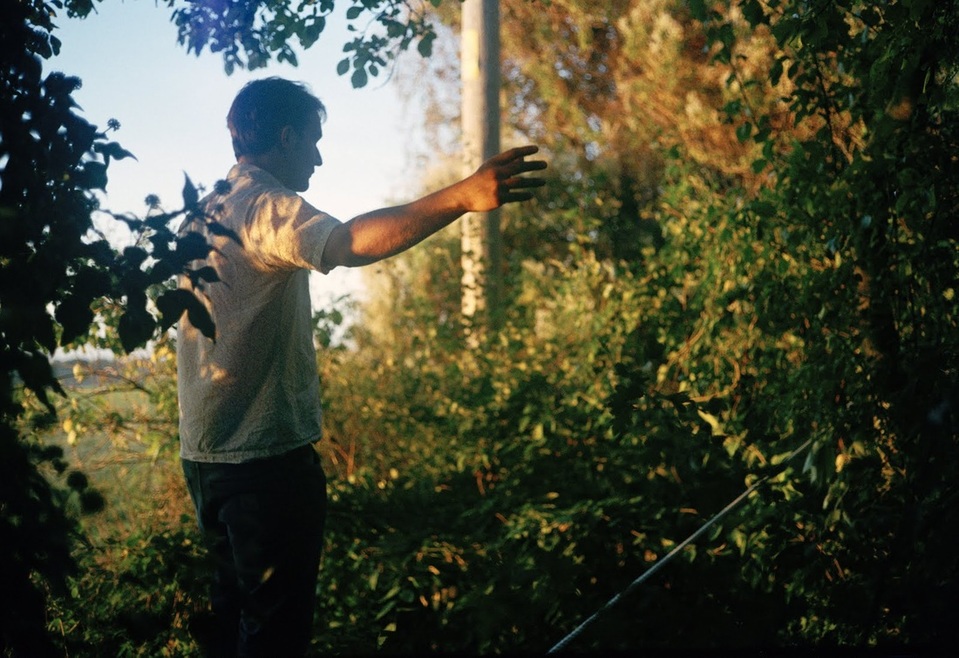|
BACK TO THE GARDEN is the latest independent offering from left-field writer/director Jon Sanders and, following previous films LOW TIDE (2008) and LATE SEPTEMBER (2012), is the final film in a trilogy shot in Kent. The improvisational drama centres around a group of friends, nearly all of whom share some career in acting, who are brought together to mourn the loss of their collective mentor Ivan (Stephen Lowe), a celebrated director. Ivan’s widow, Maggie (Emma Garden), draws friends young and old to the empty country home in for the scattering of his ashes. This includes Jack (Bob Goody), an actor friend of Ivan’s, and his wife Julia (Anna Mottram). Jack’s penchant for infidelity has led him to fellow actor Stella (Tanya Myers), who is also attending the ceremony.
BACK TO THE GARDEN was produced on a remarkably small budget, localised largely in a country home and its back garden. This restricts the film from a larger world that, by all measures, it does not need, but nonetheless lends a certain impression of claustrophobia and limitation. What Sanders does have in ample supply is the sumptuous British Countryside, which he uses to full effect as a scenic offset to the narrative. Instead of sprawling locations and special effects, BACK TO THE GARDEN persuades you through what it can focus on: dialogue - although this is not handled in the way that you might think. An incredible reliance on improvisation from all members of the cast creates an unprecedented feeling of naturalism. The numerous two shot conversations feel disarmingly organic, making every moment of the film difficult to predict and unconventional. In an interview with DIEGESIS, Sanders notes that with improvisation “you can investigate very minute areas of experience in considerable detail in a way that would be possible, but difficult, to do as a writer”. The resulting scenes are engrossing as information is slowly revealed and the film fleshes itself out. Although the extent of the director’s input into the actor’s improvisational performance is unknown, the cast seems to work well with the material, reflecting intricacies of emotion in such a raw way as to catch the viewer off guard. As Jack puts it late in the film, they aren’t “trying to be” but rather they are “just being”. Themes covered by the film include death, love and age all of which are remarkably deep topics to expound upon with a method such of improvisation, but as the film progresses you cannot help but realise that that might be the point. In the end, BACK TO THE GARDEN is a challenging watch for anyone brought up on the standard of modern filmmaking and storytelling. It is a thoughtful investigation of life, love and death that engages with a wealth of impressions and questions often ignored in mainstream storytelling. “Are we facing oblivion? Is there life after death? If so, what for?” Seeing something new in an age of mediocrity and regression is a hopeful sight and something that deserves encouragement in today’s cinematic climate. Watch our interview with writer/director Jon Sanders here |


